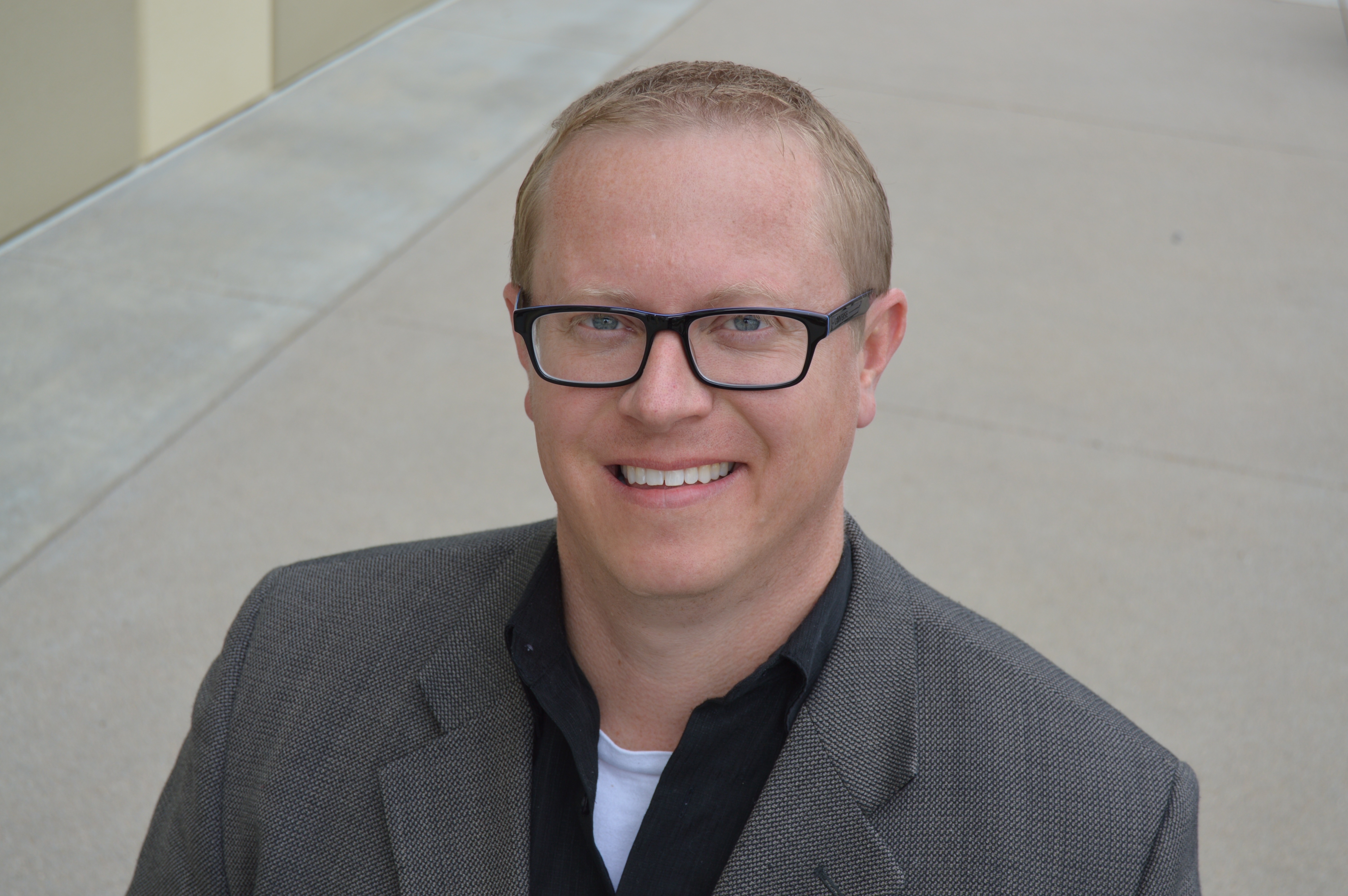Adam: Increasing compassion
The views and opinions expressed in following story are those of the author and do not necessarily reflect the opinions of Mental Health Colorado.
August 6, 2015 began like any normal day before it until my mom called my cell phone roughly around 11:00. I knew something was wrong because she rarely calls me unless there’s a problem. Little did know that my world was about to be turned upside down and changed forever.
Mom’s voice was shaking as she told me that Dad had fallen at home and he was being taken to the hospital. Their neighbor, my mom’s first cousin, found him lying on the floor in my parents’ kitchen. My mom was out of town. We realized that Dad had collapsed at least 15-20 hours earlier right after he had texted with Mom the night before.
I flew home and arrived in Iowa that evening around 8:00. My aunt picked me up and drove me to a hospital in Iowa City. My sister and I spent the night with my mom in the ICU waiting room and it wasn’t until early the next morning, when the neuro team was doing their rounds, that we were told that he had suffered a stroke which caused him to collapse.
I spent multiple days and nights with my mom in the hospital while continuing to try to work into the early hours of the mornings. My mom isolated herself during the nine days that my dad spent in the hospital and would basically only communicate with my sister and me. Because our family is so large, I took on the responsibility of seeing to everyone who would call, text, e-mail, or stop by. I would try to comfort family in the waiting room and thank them for their support.
 My illness began early on when I became hyper-focused on other patients and their families undergoing similar situations in the neuro ICU. This became a bit of an obsession learning the ins and outs of their life stories while not focusing enough on my own. I was stressed and exhausted but running on adrenaline and exhibiting manic behaviors. I was sleeping for very limited periods each night. One day, a volunteer named Emma showed up in Dad’s room to tell us about the two strokes she had suffered in life and to never give up hope. Mom said to me after she left that God had sent her and she became known to both of us as Angel Emma. Shortly after, I began to think that everything that we were seeing and experiencing with my dad and in that hospital was divinely controlled. Another example of this for me was when a Bible fell to the floor overnight in the kitchen of my parents’ home. I was convinced God caused the Bible to fall to show us a sign. I began compulsively e-mailing and texting family members to start a large prayer chain so that my dad would be released from the hospital to a rehabilitation center.
My illness began early on when I became hyper-focused on other patients and their families undergoing similar situations in the neuro ICU. This became a bit of an obsession learning the ins and outs of their life stories while not focusing enough on my own. I was stressed and exhausted but running on adrenaline and exhibiting manic behaviors. I was sleeping for very limited periods each night. One day, a volunteer named Emma showed up in Dad’s room to tell us about the two strokes she had suffered in life and to never give up hope. Mom said to me after she left that God had sent her and she became known to both of us as Angel Emma. Shortly after, I began to think that everything that we were seeing and experiencing with my dad and in that hospital was divinely controlled. Another example of this for me was when a Bible fell to the floor overnight in the kitchen of my parents’ home. I was convinced God caused the Bible to fall to show us a sign. I began compulsively e-mailing and texting family members to start a large prayer chain so that my dad would be released from the hospital to a rehabilitation center.
Up until this point in my adult life, I wasn’t a very religious person. However, during my dad’s stay at the hospital, I continued to believe there were signs and divine experiences that kept occurring. I would document every detail of these experiences late into the night by e-mail to specific members of my family who were devoutly religious because I felt they would believe me.
In the early hours of August 15, my mom received a call from the hospital staff that Dad had stopped breathing during the night and had to be intubated. After arriving at the hospital and speaking with the doctors, we went back to see Dad. The three of us spent time together with him and decided to end the life support fairly quickly. After Dad died, we returned to my parents’ home. Mom went upstairs to rest and my manic issues continued. I went straight to my laptop to basically write my dad’s obituary announcing to everyone what had happened. When I got in touch with my wife, I just recounted the facts and details of what had happened early that morning. I told my wife to not come back to Iowa because we weren’t having a funeral and I would be home shortly.
During the next 24 hours, my psychosis reached a breaking point. At one point, I asked my family if I was becoming Jesus. At another time, I begged my family not to have me “committed.” I felt aware of what was going on and I knew what I was saying and doing but I also had no control over my actions at the time. My mom likes to now say that my brain was attacked and that’s exactly what happened. I told my aunt the day Dad died that I thought we were all part of the second coming of Christ. I believed I was God but only temporarily, my son was Jesus and my wife would eventually become God and so all of us were to do anything she said.
The day after Dad died, my wife and son arrived, and she, my sister, and my aunt quickly realized that something was seriously wrong. During this entire time, I was only sleeping 2-3 hours a night. The next morning, my family managed to get me into the car to go to the hospital ER. It took hours seeing doctors and nurses before I became very irate and grabbed my brother-in-law’s arm because I believed we needed to leave and go tell people about the second coming of Christ. Only then was I sedated and admitted to their psychiatric unit.
The state mandated that I be treated in the psychiatric unit until I was able to see a judge to determine if I should be involuntarily committed. I was never officially diagnosed with a disorder but our best understanding now is that I had a situational psychosis. I was medicated with heavy doses of anti-psychotic drugs which helped calm my mood and stabilize the delusional thoughts I was having.
Three days later, a court appointed attorney represented me in the hospital conference room court case in which the doctors, my wife, a court reporter and a judge heard about my case. The judge ultimately made the decision that I could not be kept at the hospital against my will. I agreed to be voluntary admitted for a few additional days and then requested to be released.
My experience at the hospital in Iowa City was unfortunately not at all adequate to meet my needs or the needs of the other patients that were there. The doctors’ time was so brief and limited each day. They discharged me with a letter for my employer that I could not return to work without further care. They did nothing to assist with setting up care for me in Denver nor did they even fill an adequate amount of the medication I was on, even after telling me that I could not suddenly stop taking the medication.
Upon our return to Colorado, my wife returned to work and I spent long days calling and researching trying to figure out a place to receive the on-going care and treatment that I needed. This was overwhelming for us because the medication would soon run out and I was obviously not okay. Thankfully I contacted my primary care doctor and she recommended a local mental health center. I started out seeing a therapist and went to my first psychiatric appointment on September 17, basically three weeks after we returned to Denver. I learned from the mental health center that it could potentially take months before one of their psychiatrists would approve me to return to work. I called and pressured the Iowa City hospital to approve me to return to work and I received that letter from the department head days later even though he had not evaluated me since I left the hospital.
At my first psychiatric appointment, the doctor said she felt there was a 50-60% chance I had bipolar disorder. She adjusted my meds which was fantastic because the change helped improve my mood and helped my old personality to return a bit. However, my care was still minimal as it was from a part-time doctor and our visits were very brief. Little by little, I just improved and things returned to normal or my “new normal.”
I think the experience was harder on my wife than it was on me. I would get angry with her when I would overhear her discussing this with her friends who asked how I was doing. She had no support system through all of this. I think anyone who deals with a mental illness feels embarrassed, ashamed and afraid because of the horrible stigmas society associates with this. It took me nearly two years to get to this place where I am no longer embarrassed or ashamed. I now want people to hear my story. It doesn’t have to take a serious mental illness you experience or someone close to you to embrace this issue and increase compassion. A friend of mine recently asked me if I could change one thing about mental health what it would be. My answer was simple: increasing compassion.
Mental illness was never a thought in my mind until it attacked me and my family. Thankfully, I suffered a temporary illness. My brain was attacked and there is no explanation besides extreme fatigue and circumstances. I ended my treatment and meds seven months after my time in the hospital and I’m okay now. I’m a more humble and caring person. I’m a better employee and I’m trying to be a better husband and father. My “new normal” works just fine for me.
— Adam Graber
———————————————————–
DONATE TO MENTAL HEALTH COLORADO
More than 500,000 Coloradans lack the mental health care they need. You can change that. For more than 60 years, Mental Health Colorado has led the charge in promoting mental health, ending stigma, and ensuring equitable access to mental health and substance use services. It’s life-changing work. Your contribution makes it possible.



